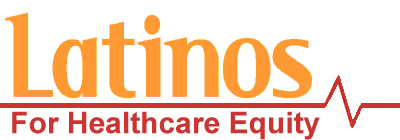« Democrats Hedge on Health Care | Main | 10% of Population, 40% of Uninsured »
Dodd: Nation desires unviersal health
By admin | May 8, 2008
By Ryan J. Phelan, Record-Journal staff
MERIDEN – The American people are desperate for a universal health care plan, said U.S. Sen. Christopher J. Dodd, D-Conn., during his keynote address at the regional action summit of Latino Voices in Universal Healthcare on Saturday.
Dodd’s speech touched on a number of topics discussed at the daylong summit, co-sponsored by the Latinos for National Health Insurance and Universal Health Care Foundation of Connecticut. Dodd stressed the need for universal coverage of children, regardless of their documented status, and condemned proposals from the Bush administration that would reduce Medicaid funds by more than $83 million in Connecticut.
Dodd further said that plans to incorporate universal health care coverage had a majority of support in Congress and were only being stymied by the president’s veto power.
“Blue states and red states have gotten beyond this issue,” Dodd said. “We should not play politics when it comes to children. Whether a child is documented or not documented, they deserve to have health insurance.”
Due to the current administration’s refusal to hear out universal health care suggestions, any plans to enact reform would have to wait until after the new president takes office, Dodd said.
All three presidential candidates’ health plans promise to make health insurance available to all, but none of the plans address all of the concerns expressed by the summit’s panel of speakers. Dr. Olveen Carrasquillo, the principal investigator and director of the Columbia Center for the Health of Urban Minorities, examined the three plans and found that none were explicit enough in how they were going to make health care affordable for Latinos, and said that none included coverage for undocumented residents.
Key to the summit’s discussion was the issue of racial and ethnic disparities in health care, in what some speakers called a “health care apartheid” and “enforced poverty.”
In July 2007, the nation’s Hispanic population was recorded at 45.5 million, more than 15 percent of the U.S. population of 301.6 million. However, Latinos make up more than 40 percent of the nation’s uninsured, with the highest numbers existing in undocumented immigrants from Mexico.
Many Latinos are covered under Medicaid, which Carrasquillo said was considered by many to be second-rate coverage with respect to Medicare. Speaking from his position as a doctor, Carrasquillo related how Latinos were waiting months for operations that with better coverage would have been taken care of in days. Other speakers suggested that while protecting the Medicaid safety net was important, it was a symptom of a larger problem.
Many at the summit expressed frustration with the fragmentation of the current health care system, which is split into 1,500 separate health plans and lags behind other industrialized countries in terms of efficient spending, according to Dr. Jaime Torres, president of Latinos for National Health Insurance.
“The middle man is killing us,” Torres said. “One health insurance for all, for life. This will be the first step for a mechanism where the money will be distributed in a way that makes sense.”
Carrasquillo said research done in 2003 had shown that a national health care plan that awarded insurance to all residents, documented or not, would save between $200 billion and $250 billion, but feels that despite studies and statistics that there are those who would rather pay more in order to exclude the undocumented rather than save on an inclusive plan.
“I think the most glaring issue is that most of the leading politicians are not willing to take on this issue,” Carrasquillo said. “It’s obvious that there’s widespread public support. Over half the U.S. population supports this, and yet they don’t want to talk about it, simply put, because they don’t have the backbones to stand up to the insurance and pharmaceutical industry.”
“Obviously, the universality of covering everybody is important,” Dodd said. “Connecticut has been fairly progressive on these issues historically, so my hope is that would serve as the impetus. When you get states like Iowa, Wisconsin, Illinois voting unanimously to do these things, you get some sense of where the issue is, so my hope is that Washington catches up.”
Even if the nation were to get national health coverage tomorrow, concern was brought up addressing the capacity issues faced by hospitals due to disproportionate incentives toward primary care physicians versus specialists.
Dodd said that the issue of capacity would have to be addressed along with issues of universal health care in order to make the system work. He suggested financial incentive plans for medical students, easing the burden of education costs for those going into primary physician care.
“I would like to see us do more, particularly where we can get people to serve in hard-to-serve areas,” Dodd said. “Given the cost of medical school, the obvious way of doing it is to provide the kind of financial help that if you’re willing to commit to going into cities or Third World areas, we’ll make a difference in your medical education.”
Dr. Torres asked those assembled to think about the reality of the issues facing Latinos in health care, and said the message must change if the outcry for national health care was going to be heard.
“In the past it has been a political and economic issue,” Torres said. “We need to make it a moral issue.”
Topics: Uncategorized | Comments Off on Dodd: Nation desires unviersal health
Comments are closed.


